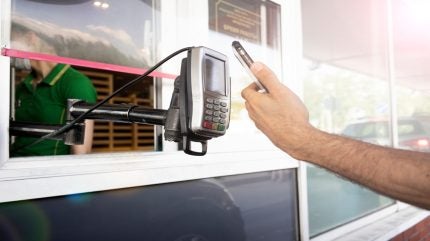
Hi Auto has raised $15m in Series A funding to scale conversational AI for quick-service restaurant (QSR) drive-throughs.
Hi Auto, a startup developing AI-powered voice technology for the QSR industry, is extending its AI order-taking solution to tackle increasing labour costs and enhance customer experience.
The latest funding round was led by Delek Motors, Zisapel Family, Vasuki Tech Fund and a publicly traded strategic investor from the restaurant sector.
It increases Hi Auto’s total raised funds to $23m, with contributions from Allied Group, Goldbell Investments and the Meir Barel Group.
A $4m credit line has been secured to bolster Hi Auto’s growth and expansion plans.
Hi Auto’s software-as-a-service platform is designed to automate the drive-through ordering process, offering a greater-than-96% order accuracy and a completion rate exceeding 90%.

US Tariffs are shifting - will you react or anticipate?
Don’t let policy changes catch you off guard. Stay proactive with real-time data and expert analysis.
By GlobalDataAs QSRs face rising labour costs, exemplified by California’s new $20/hour minimum wage for fast-food workers, maintaining drive-through efficiency and profitability has become increasingly challenging.
Hi Auto addresses these issues by shifting the ordering process to AI, allowing staff to concentrate on tasks that add more value, such as food preparation and customer service.
Hi Auto CEO and co-founder Roy Baharav stated: “Rising labour costs and labour turnover continue to strain restaurant operations. Our AI-powered ordering system acts like an always-available drive-through specialist — one that never calls in sick, delivers near-perfect accuracy and can upsell consistently. This funding will help us expand our footprint and refine our product as we become a trusted partner with leading QSR brands.”
The company’s client list includes Bojangles, Checkers & Rally’s, Lee’s Famous Recipe Chicken, Burger King New Zealand and Popeyes UK.
It is currently conducting multiple paid pilots with leading QSR chains in the US and internationally.
This technology stands out for its advanced noise-cancellation capabilities and a language model specifically tailored for the noisy drive-through environment, which helps to minimise order mistakes.
The AI uses real-time data such as store inventory, time of day and weather conditions to suggest additional or premium items to customers.
Baharav added: “Whether it’s lunchtime at a busy urban drive-through or late night in a suburban setting, we can determine which products to promote and when. We’ve seen increased check sizes directly impacting the bottom line.”



